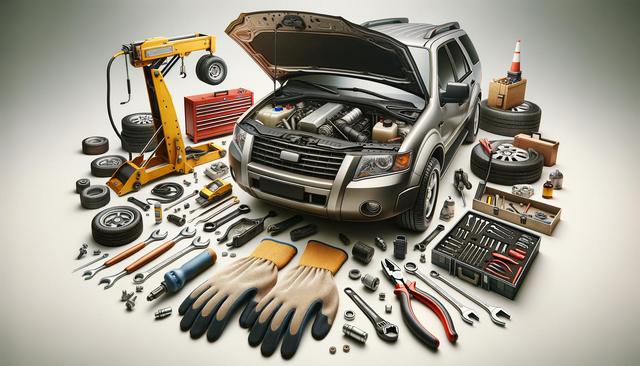The Importance of Routine Auto Maintenance
Routine auto maintenance is essential to ensure a vehicle performs efficiently and remains safe on the road. Regular checkups, such as oil changes, tire rotations, and brake inspections, can prevent minor issues from becoming major repairs. These services not only help extend the life of the vehicle but also contribute to better fuel efficiency and overall reliability. Neglecting routine maintenance can lead to breakdowns, costly repairs, and reduced vehicle lifespan. Technicians trained in identifying early warning signs can save vehicle owners significant time and money in the long run.
Some of the key maintenance tasks include:
- Changing engine oil and filters
- Inspecting and replacing air and cabin filters
- Checking fluid levels and replacing as needed
- Monitoring tire pressure and tread depth
By staying on top of these services, drivers can enjoy smoother rides and reduce the likelihood of sudden malfunctions.
Diagnosing Common Car Problems
One of the primary roles of an auto mechanic is diagnosing problems accurately. A skilled technician uses a combination of experience and diagnostic tools to determine what issues may be affecting a vehicle’s performance. Whether it’s a strange noise, a dashboard warning light, or poor fuel efficiency, the ability to pinpoint the root cause is essential. Proper diagnosis ensures that the correct repairs are made, preventing unnecessary expenses and further complications.
Some common problems that require professional diagnosis include:
- Engine knocking or stalling
- Transmission slipping or delayed shifting
- Unusual exhaust smoke or odors
- Overheating due to a failing cooling system
With modern vehicles becoming increasingly complex, the demand for technicians who can interpret computer codes and perform hands-on testing continues to grow.
Understanding Engine and Transmission Repairs
The engine and transmission are two of the most critical components in any vehicle, and when issues arise in these systems, they often require expert attention. Repairs involving these parts can be intricate, as they involve multiple interconnected systems and high-precision components. Experienced technicians are trained to disassemble, inspect, and rebuild these systems when necessary, ensuring that every piece functions as intended.
Common services in this area include:
- Replacing worn gaskets and seals
- Fixing timing belt or chain issues
- Repairing or replacing transmission components
- Resurfacing or replacing engine heads and valves
Due to the complexity of these systems, it is crucial to rely on trained professionals who understand the technical specifications and manufacturer guidelines for each specific vehicle make and model.
The Role of Technology in Modern Auto Repair
Today’s vehicles are equipped with advanced electronics and onboard computer systems that monitor and control nearly every function. This technological evolution has transformed the way auto repairs are performed. Modern diagnostic tools can scan for error codes, track performance metrics, and even suggest potential causes of issues. As a result, technicians must stay current with emerging technologies and continually update their training to work effectively with new systems.
Technological tools commonly used in auto repair shops include:
- Onboard diagnostics (OBD-II) scanners
- Digital multimeters and oscilloscopes
- Diagnostic software for engine and transmission controls
- Vehicle-specific service databases and repair manuals
This integration of technology into auto repair highlights the growing need for skilled technicians who not only have mechanical expertise but also a solid understanding of electronics and software.
The Increasing Demand for Skilled Technicians
As vehicles become more sophisticated and the average age of cars on the road increases, so does the demand for knowledgeable mechanics. Car repairs highlight the need for mechanics who can not only fix current problems but also help prevent future ones through regular maintenance and early detection. Whether working in dealerships, independent garages, or specialized service centers, skilled professionals are essential to keeping vehicles running smoothly and safely.
Factors contributing to this demand include:
- More complex vehicle designs requiring specialized knowledge
- Increased focus on preventative maintenance
- Growing number of vehicles on the road
- Shortage of new technicians entering the field
Investing in technician education and training not only benefits the automotive industry but also ensures that drivers continue to receive high-quality service that keeps their vehicles in top condition.
Conclusion: Maintaining Performance Through Expertise
Auto repair and maintenance are more than just routine tasks—they are essential services that ensure safety, efficiency, and vehicle longevity. Skilled technicians play a pivotal role in diagnosing and resolving issues, performing intricate repairs, and adapting to rapidly evolving automotive technologies. As vehicles continue to advance, the need for well-trained professionals becomes increasingly important. For vehicle owners, finding and trusting qualified mechanics is a valuable step toward preserving their investment and maintaining peace of mind on the road.




Leave a Reply